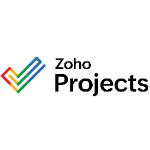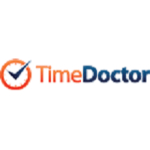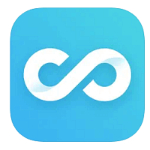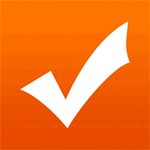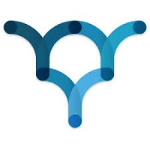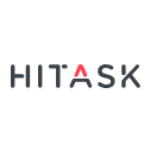List of Best Task Management Software
Showing 10 of 181 productsZoho Projects software is a tool that allows you to efficiently manage all your tasks and projects in one central location, from small day-to-day tasks to larger, more complex projects. This powerful Zoho Projects software is the perfect solution for...Read Zoho Projects Reviews
Are you tired of juggling employee scheduling and managing your restaurant? Look no further than 7shifts, the all-in-one employee scheduling software. With intuitive features and real-time updates, 7shifts streamlines your workforce management so you...Read 7shifts Reviews
Time Doctor is a productivity and time tracking software designed to help individuals and businesses stay organized is a . With its user-friendly interface features, Time Doctor simplifies time management and boosts productivity, making it a must-hav...Read Time Doctor Reviews
Connecteam is a all-in-one employee management solution designed to streamline communication, tasks, and training for teams of all sizes. With an easy-to-use interface and a wide range of features, Connecteam empowers businesses to improve productivi...Read Connecteam Reviews
Trello, a popular project management tool, offers an efficient and user-friendly way to organize tasks, projects, and workflows. With its intuitive UI, Trello streamlines collaboration across teams, making it a top choice for businesses of all sizes...Read Trello Reviews
the world of Asana! Asana Community brings together individuals and teams from all over the globe to collaborate, organize, and achieve their goals effortlessly. With its user-friendly interface and powerful features, Asana has become a go-to project...Read Asana Community Reviews
SmartTask is a dynamic is a project management software designed to streamline tasks and increase productivity. With its user-friendly interface features, SmartTask is the perfect solution for businesses of all sizes looking to optimize their workflo...Read SmartTask Reviews
Producteev is a task management software designed to streamline your productivity and organization. With a sleek and user-friendly interface, Producteev allows you to effortlessly manage projects, deadlines, and team collaboration, all in one conveni...Read Producteev Reviews
Hitask is a task management tool designed to streamline your workflow and increase productivity. With intuitive features and user-friendly interface, Hitask allows you to collaborate with your team, organize tasks, and stay on top of your deadlines...Read Hitask Reviews
Flow is a software designed to streamline your workflow and enhance productivity. With its user-friendly interface features, Flow simplifies task management, communication, and collaboration for individuals and teams. Say goodbye to cluttered project...Read Flow Reviews
- What Is Task Management Software?
- What Are the Benefits of Using Task Management Software?
- What Key Features Should You Look for in Task Management Software?
- What Are the Considerations for Task Management Software in Different Industries?
- How to Choose the Right Task Management Software for Your Business?
- What Pricing Models Are Available for Task Management Software?
- What Future Trends Should Businesses Be Aware of in Task Management Software?
What Is Task Management Software?
Task management software is a versatile digital tool designed to help individuals, teams, and organizations effectively organize, track, and manage their tasks and projects. It serves as a centralized platform that provides an overview of all tasks, their current statuses, and who is responsible for each. This type of software facilitates the planning and execution of activities by allowing users to set priorities, deadlines, and reminders.
The primary goal of task management software is to enhance productivity and efficiency. It achieves this by automating routine processes, reducing the likelihood of human error, and enabling better communication among team members. Users can visualize tasks in various formats, such as lists, kanban boards, or calendars, making it easier to understand workflows and manage time effectively.
Beyond simple task tracking, advanced task management software integrates with other tools such as email clients, calendar apps, and project management systems, providing a comprehensive solution that supports task management and broader project management needs. This integration capability ensures that all pieces of a project are aligned and that information flows seamlessly across the various platforms used by an organization.
What Are the Benefits of Using Task Management Software?
Task management software offers numerous benefits that enhance both individual and organizational performance. Here are the primary advantages:
1. Improved Organization:
Task management software helps organize tasks into manageable units, assigns them to the appropriate team members, and tracks their progress until completion. This organization leads to a clearer workflow structure and ensures that nothing is overlooked.
2. Enhanced Productivity:
By providing tools for prioritizing tasks, setting deadlines, and automating repetitive actions, this software allows teams to focus on the most important tasks first, optimizing time management and increasing overall productivity.
3. Better Collaboration:
Teams can collaborate more effectively as task management software facilitates transparent communication. Members can update task statuses, share files, and exchange feedback in real-time, ensuring everyone is aligned and informed.
4. Increased Accountability:
With tasks clearly assigned and their progress visible to all team members, accountability is improved. Everyone knows who is responsible for what, reducing confusion and encouraging a higher level of personal responsibility.
5. Accessible Reporting and Analytics:
Many task management tools come with built-in reporting and analytics to track the performance and progress of tasks. These insights help managers make informed decisions about project directions and resource allocation.
6. Flexibility and Scalability:
As businesses grow, their task management needs can become more complex. Task management software easily scales to accommodate an increasing number of tasks and users without losing performance, thus supporting business growth seamlessly.
7. Enhanced Focus on Goals:
By aligning daily tasks with overall project goals, this software ensures that all activities contribute towards the larger objectives. This alignment helps teams maintain focus on strategic targets, not just short-term achievements.
8. Reduced Stress and Overload:
By organizing tasks effectively and providing clear deadlines, task management software helps reduce workplace stress. Team members can manage their workloads better, preventing burnout and promoting a healthier work environment.
What Key Features Should You Look for in Task Management Software?
When selecting task management software, it's essential to consider features that will directly enhance your workflow efficiency and meet your specific project needs. Here are key features to look for:
• Task Prioritization and Scheduling: Effective task management software allows you to prioritize tasks based on urgency and importance. It should enable scheduling with deadlines and reminders to keep projects on track.
• Collaboration Tools: Look for software that includes features for team collaboration, such as real-time updates, comments, file sharing, and the ability to assign tasks to multiple users. These tools are crucial for keeping everyone on the same page and enhancing team synergy.
• Integration Capabilities: The best task management software can integrate seamlessly with other tools that your team already uses, such as calendar apps, email clients, CRM systems, and file storage solutions. Integration helps streamline workflows and reduces the need to switch between multiple platforms.
• Customization Options: Each team has unique needs and workflows. Customizable software allows you to modify features to fit your specific processes, whether it’s changing the interface, adjusting notifications, or setting up unique workflow management.
• Mobile Accessibility: With remote work becoming more common, mobile-friendly software that allows team members to access and update their tasks from anywhere is a must. Ensure the software offers robust mobile apps or a mobile-optimized web interface.
• Reporting and Analytics: To measure productivity and track progress, your task management software should offer comprehensive reporting tools and analytics. These features can help identify bottlenecks, monitor workload balances, and ensure that projects are progressing as planned.
• Security Features: Given the sensitivity of project data, robust security features are critical. Look for software that offers encryption, secure data storage, user access controls, and regular security updates to protect your information.
• User-Friendly Interface: The software should have a clean, intuitive interface that’s easy to use without extensive training. A user-friendly design can greatly enhance user adoption rates and overall team productivity.
• Support and Resources: Good customer support can be invaluable, especially when implementing new software. Look for providers that offer comprehensive support through tutorials, customer service, and a knowledge base.
Choosing task management software with the right mix of these features will ensure that your team can manage tasks effectively while improving overall productivity and collaboration.
What Are the Considerations for Task Management Software in Different Industries?
When choosing task management software, it's crucial to consider the unique demands and challenges of your specific industry. Different sectors have distinct workflows, compliance requirements, and collaboration needs that can significantly influence the functionality required from such software. Here are some industry-specific considerations:
1. Technology and Software Development:
- Bug and Issue Tracking: Integration with bug tracking systems or built-in bug tracking capabilities is essential.
- Version Control: Ability to integrate with version control systems like Git to manage changes in software development projects.
- Agile Methodologies: Support for agile project management features like scrum boards and sprints.
2. Marketing and Creative Agencies:
- Collaboration Features: Enhanced collaboration tools for sharing files, feedback, and revisions in real-time.
- Time Tracking: Capabilities to track time spent on creative tasks for billing and productivity analysis.
- Client Access: Client portals where clients can view progress, contribute to discussions, and approve materials.
3. Manufacturing and Construction:
- Resource Allocation: Tools to manage and allocate physical resources and manpower.
- Project Milestones: Features to set and track key project milestones and deadlines.
- Mobile Access: Robust mobile functionality to update and track tasks from remote or on-site locations.
4. Healthcare:
- Compliance and Security: Strict adherence to healthcare regulations such as HIPAA, ensuring patient data is protected.
- Shift Scheduling: Features for managing shift rotations and scheduling for 24/7 staff coverage.
- Task Standardization: Ability to standardize tasks according to healthcare protocols.
5. Education:
- Academic Calendars: Integration with academic scheduling and calendars.
- Collaborative Learning Tools: Features that facilitate collaboration among students and between teachers and students.
- Assignment Tracking: Capabilities to track and manage student assignments and projects.
6. Retail:
- Inventory Management Integration: Integration with inventory management systems to synchronize stock levels with associated tasks.
- Customer Service Management: Tools for managing tasks related to customer service inquiries and support.
- Sales Tracking: Features that align task management with sales targets and promotions.
7. Legal Services:
- Document Management: Advanced document management capabilities for handling case files and legal documents.
- Confidentiality Features: Enhanced security features to protect client confidentiality and sensitive information.
- Time-sensitive Task Alerts: Alert systems for critical deadlines typical in legal environments.
When evaluating task management software for your industry, it’s essential to prioritize features that address your specific operational workflows and regulatory requirements. This alignment ensures the software not only fits seamlessly into your daily activities but also enhances your team’s efficiency and compliance with industry standards.
How to Choose the Right Task Management Software for Your Business?
Selecting the right task management software is crucial for enhancing your team's productivity and streamlining your operations. Here’s a step-by-step guide to help you choose the best task management software for your business:
1. Assess Your Needs:
- Identify Pain Points: Understand the specific challenges your team faces in managing tasks and projects.
- Define Requirements: List out must-have features versus nice-to-have features based on your team's workflow, size, and industry-specific needs.
2. Research Options:
- Explore Vendors: Look for software providers who specialize in your industry or have experience with businesses similar to yours.
- Read Reviews: Check out reviews from current and past users to gauge satisfaction levels and common issues.
3. Compare Features:
- Essential Features: Ensure the software meets your critical requirements like integration capabilities, mobile access, and user-friendly interfaces.
- Additional Benefits: Consider extra features that could enhance productivity further, such as AI capabilities, advanced analytics, or built-in compliance measures.
4. Evaluate Scalability:
- Growth Compatibility: Choose software that can scale with your business, accommodating more users and more complex projects as your needs evolve.
5. Check Integration Capabilities:
- Compatibility with Existing Tools: Ensure the software can integrate smoothly with tools you already use (like CRM systems, email platforms, and financial software) to maintain workflow continuity.
6. Test Usability:
- User Experience: Opt for software that has an intuitive interface and doesn’t require extensive training, which can be a hurdle for adoption across teams.
7. Consider Security and Compliance:
- Data Security: Confirm that the software provides robust data security measures, especially if you handle sensitive information.
- Regulatory Compliance: Make sure the software complies with industry-specific regulations (e.g., GDPR, HIPAA).
8. Understand Pricing Structures:
- Cost Efficiency: Analyze the pricing models to find one that suits your budget while meeting your needs. Consider the total cost of ownership, including any additional fees for support or upgrades.
9. Take Advantage of Trials and Demos:
- Hands-On Experience: Utilize free trials and demos to get a feel for how the software works in real-time scenarios. This step can help validate if the software fits your expectations and works well for your team.
10. Evaluate Support and Customer Service:
-
- Availability and Responsiveness: Ensure that the software provider offers reliable customer support. Having accessible and effective customer service can be critical, especially during the initial phases of implementation and in ongoing operations.
By carefully considering each of these aspects, you can make a well-informed decision that aligns with your business objectives, enhances productivity, and ensures smooth adoption and usability among your team members.
What Pricing Models Are Available for Task Management Software?
Choosing the right pricing model for task management software is crucial as it impacts your budget and the scalability of the solution. Various pricing structures cater to different business sizes, usage levels, and budget constraints. Here are the most common pricing models you'll encounter when selecting task management software:
1. Subscription-Based Pricing:
- Monthly or Annual Fees: This is the most common model where you pay a recurring fee based on the number of users or the level of functionality required. This model often includes regular updates and support.
- Tiered Pricing: Many vendors offer tiered pricing structures within the subscription model, where higher tiers include additional features, increased storage, or enhanced support.
2. Per-User Pricing:
- Scalable Costs: Costs increase with each additional user, making this model suitable for businesses that can precisely predict the number of users. It's straightforward and scalable, aligning the cost directly with usage.
3. Freemium Model:
- Basic Features for Free: Vendors offer a basic version of the software for free, which includes limited features. Advanced features, additional storage, or premium support are available for a fee. This model is ideal for small teams or startups looking to scale gradually.
4. Perpetual License:
- One-Time Fee: A less common model these days, this involves paying a single, upfront cost for indefinite use of the software. While there are no recurring fees, updates and support might require additional payments.
5. Project-Based Pricing:
- Fixed Cost for Duration of Project: Some providers may offer a pricing model based on the duration or scope of a project, particularly suitable for companies that manage projects with a clear start and end date.
6. Custom Pricing:
- Tailored to Business Needs: Larger enterprises or businesses with complex needs might opt for custom pricing. This can involve negotiations with the vendor to develop a pricing structure that fits specific requirements, such as unlimited users, bespoke integrations, or enterprise-wide features.
Each pricing model has its advantages and considerations, and the choice depends on factors such as the size of your team, the scale of your projects, your growth expectations, and how intensively you plan to use the software. It's essential to carefully evaluate these models against your business needs and budget constraints to select the most cost-effective and scalable option for your organization.
What Future Trends Should Businesses Be Aware of in Task Management Software?
Task management software is evolving rapidly, driven by technological advancements and changing workplace dynamics. Staying ahead of these trends can help businesses leverage new features for increased efficiency and competitive advantage. Here are key future trends to watch in task management software:
1. Artificial Intelligence and Machine Learning:
- Predictive Analytics: AI algorithms can analyze historical data to predict task completion times, potential delays, and resource needs, helping managers plan more effectively.
- Automation of Routine Tasks: AI can automate repetitive tasks like scheduling and prioritizing, freeing up human resources for more complex decision-making processes.
2. Enhanced Integration Capabilities:
- Comprehensive Ecosystems: As businesses use an increasing number of tools, task management software that integrates seamlessly with a wide range of platforms (CRM, ERP, communication tools) will become essential.
- Cross-Platform Functionality: Ensuring smooth functionality across various devices and systems will be crucial for supporting remote and hybrid work models.
3. Improved Collaboration Tools:
- Real-Time Communication: Enhanced messaging features and integration with communication platforms will make collaboration more immediate and effective.
- Virtual Workspaces: Task management tools may incorporate virtual reality (VR) or augmented reality (AR) to create more immersive and interactive virtual workspaces.
4. Focus on User Experience (UX):
- Intuitive Interfaces: As the user base diversifies, software with simple, intuitive interfaces will dominate, minimizing the learning curve and enhancing user adoption.
- Personalization: Customizable dashboards and user-specific configurations will improve efficiency by allowing users to tailor the software to their personal workflows and preferences.
5. Mobile Optimization:
- Full Functionality on Mobile Devices: With the rise of mobile workforce, task management software will offer full functionality on smartphones and tablets, not just limited access.
- Offline Capabilities: Enhanced offline functionality will ensure that mobile users can continue to work without constant internet access.
6. Security and Compliance:
- Advanced Security Features: As cyber threats evolve, so will the security features in task management software, including end-to-end encryption and sophisticated access controls.
- Compliance Tools: Software will increasingly include features to help businesses comply with international data protection regulations like GDPR compliance.
7. Sustainability and Social Responsibility:
- Eco-friendly Features: Software might include features that help organizations track and reduce their carbon footprint through better resource allocation and virtual collaboration options.
- Promotion of Well-being: Tools focusing on the well-being of teams, such as workload balance analytics and stress level monitoring, will become more prevalent.
Understanding these trends and how they can impact your business operations is crucial for making informed decisions about investing in task management software. By aligning software choices with these developments, companies can ensure that their task management tools remain effective and relevant in the ever-evolving business landscape.
